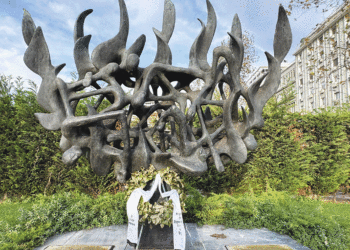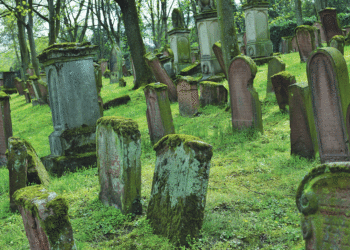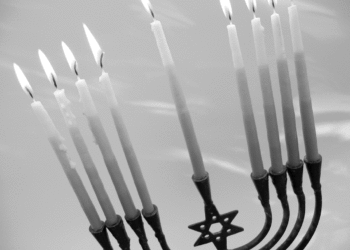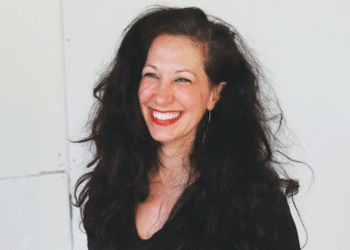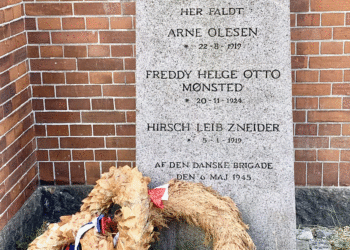By ALEXANDER DAVIS
Tradition teaches that when we enter a synagogue, we are to recite words of prayer: “Ma Tovu ohalech Yaakov, How good are your tents, O Jacob.” I say these words every morning as I enter Beth El Synagogue. But on a recent trip, this prayer took on a new meaning.
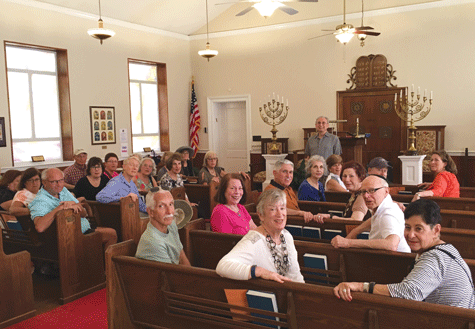
I was travelling with a group from Beth El to Charleston and Savannah. As we enjoyed Southern hospitality, we explored Jewish life past and present. Charleston and Savannah are two of America’s oldest Jewish communities. Jews arrived there in colonial times and established vibrant communities.
And so it was moving to see a Jewish cemetery with gravestones from the Revolutionary War. It was challenging to wrestle with the notion of Jews as slave owners. It was exciting to see the oldest Torah scroll in America. But more than lessons of long ago, the story that sticks with me is a story of a Jewish community working hard to survive and preserve its heritage.
With charming Victorian homes and oak tree-lined streets, and nestled on Winyeh Bay, Georgetown, S.C., is a picturesque town an hour north of Charleston. Georgetown claims to be the site of North America’s first European settlement in 1526. Jews arrived later, in the 1700s from England.
Facing little anti-Semitism, Jews prospered in Georgetown. With 10 percent of the early population, they held a disproportionately large role in civic life. They were founders of downtown businesses. Before the 20th century, there were five Jewish mayors of Georgetown.
We learned about some of these personalities from Richard Dimentstein, as we drove past the once Jewish-owned storefronts and mansions, and as we toured the Jewish cemetery and Temple Beth Elohim.
Richard, the longtime synagogue president, told us that just a few years ago the Temple Beth Elohim was down to five member families. They had sold one of their Torah scrolls, had no rabbi, no children and squirrels ran around in the attic. The community “elders,” as they are known, held a meeting to discuss closing the congregation. Just before they put the question to a vote, a woman came in and persuaded them not to close.
Elizabeth Moses was new to town but she already knew the synagogue’s story. She traced her roots back to Sephardic Jews who fled the Spanish inquisition and settled in the area, in 1735. Having spent the previous years working for the Jewish Historical Society of South Carolina, she felt compelled by the synagogue’s history. It wasn’t going to close on her watch.
With enthusiasm, determination and conviction, she would find new members. And indeed, she did. Elizabeth scoured the county, found relocated retirees and convinced them to join the community. Now, just a few years later, Temple Beth Elohim has over 45 members and is looking toward the future.
After hearing the inspiring story of Jews working hard to preserve Jewish life, we concluded our tour in the Temple Beth Elohim sanctuary by singing “Ma Tovu.” And as we did so, moved by our song that filled the sanctuary with spirit, tears welled up in Richard’s eyes. But truly I was the one moved.
In “Ma Tovu,” we declare “Makom mishkan k’vodecha,” “This is a place where God’s glory dwells.” As we sang these words in Georgetown’s synagogue, I realized that God’s glory (k’vod) dwells there because of people like Richard and Elizabeth who bring honor (kavod) to their synagogue. Through their commitment, their dedication and their love of their community and its history, they make it a place that lives up to its name, Beth Elohim, a House of God worthy of our praise, “Ma Tovu!”
***
Rabbi Alexander Davis is co-senior rabbi of Beth El Synagogue in St. Louis Park.










